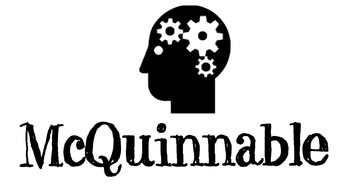 I read with interest the recent news that the French Minister of Education is banning smartphones from schools for students under 15 starting next fall. (You can read about it here.) After spending the last ten years learning about what neuroscience can tell us about how the brain works, I find myself squarely on his side. That's less heretical for an ed tech person to say than it used to be. People are increasingly aware of how devices such as smartphones and the social media/communications software that drive their use are consciously designed to tap into important, basic human responses. The engineers that develop and program them are intentionally creating engines of distraction and habituation, which should come as no surprise to anyone spending any time around smartphone users, young or old. I know there are many powerful functions and apps that can make for great classroom applications. Most smartphones are more powerful than the classroom computers our students were using just a few years ago. The problem is that all of the negative, distracting aspects of the phones are an inseparable part of the package. Whether it's text messages, Twitter, Instagram, SnapChat, WhatsApp, Facebook, or whatever new things are out this month, there will be a steady stream of alerts, buzzes, dings, and other fiendishly effective distractors that will grasp for the student's attention. It's even more intense for adolescents, as they are developmentally focused on their social world, and smartphones provide an intense connection into every member of their community, all at once, all the time. This is not saying that students lack will power. It's admitting that it's hard for anyone to ignore these extremely well-developed attention grabbing systems. These interruptions and distractions impair learning. Kids (and many adults) sincerely believe that they can multitask, and that it just takes them a moment to check that message and get back to the task at hand. The problem is that people engaged in multitasking end up doing their work at lower quality and taking more time to do it. (The best demonstration of this I've seen is this video activity by Dave Crenshaw. It's a great activity to do with students and/or teachers.) It is even more pronounced when the distraction has emotional significance, which for teenagers is just about any social media posting or message. Deep learning takes time. Uninterrupted, focused time. The next book on my reading list is called Deep Work, by Cal Newport. You can listen to a great interview with him about the topic on the podcast/radio program Hidden Brain. He presents compelling evidence that the more time we spend in busy, shallow work, the less capacity we have for doing truly meaningful deep work that requires focus and persistence. Being able to focus is a skill, and we need to practice it. That means we need to create environments where students are given the opportunity to regularly engage in a single task without interruption. (This is more than a smartphone issue, obviously. In your school schedule, what is the longest block of time that students get to spend working on just one thing?) One of the most critical skills to learn about technology is when to use it, and when not to. It is there to empower us, not overpower us. We all - children and adults alike - need to recognize when using technology interferes with learning, working, thinking, or even just carry on meaningful conversations. Or figuring out how to constructively respond to boredom without resorting to Facebook, Pinterest, or Candy Crush. I think one measure of just how important it is to separate students from their smartphones is how hard it is. It's not just the students; parents want to be able to contact their children whenever they feel the need. If we are all so habituated to these devices (and more importantly, the social media software that's on them) that being without them is upsetting, then it's time to admit to ourselves that we have a problem. If you're interested in discussing/exploring/arguing more about this topic, I'm doing a session at the NCCE conference on called Being a Well-Adjusted Cyborg - What Neuroscience Tells Us about Using Technology. I hope to see you there!
4 Comments
|
Archives
October 2019
Categories
|
Proudly powered by Weebly

 RSS Feed
RSS Feed